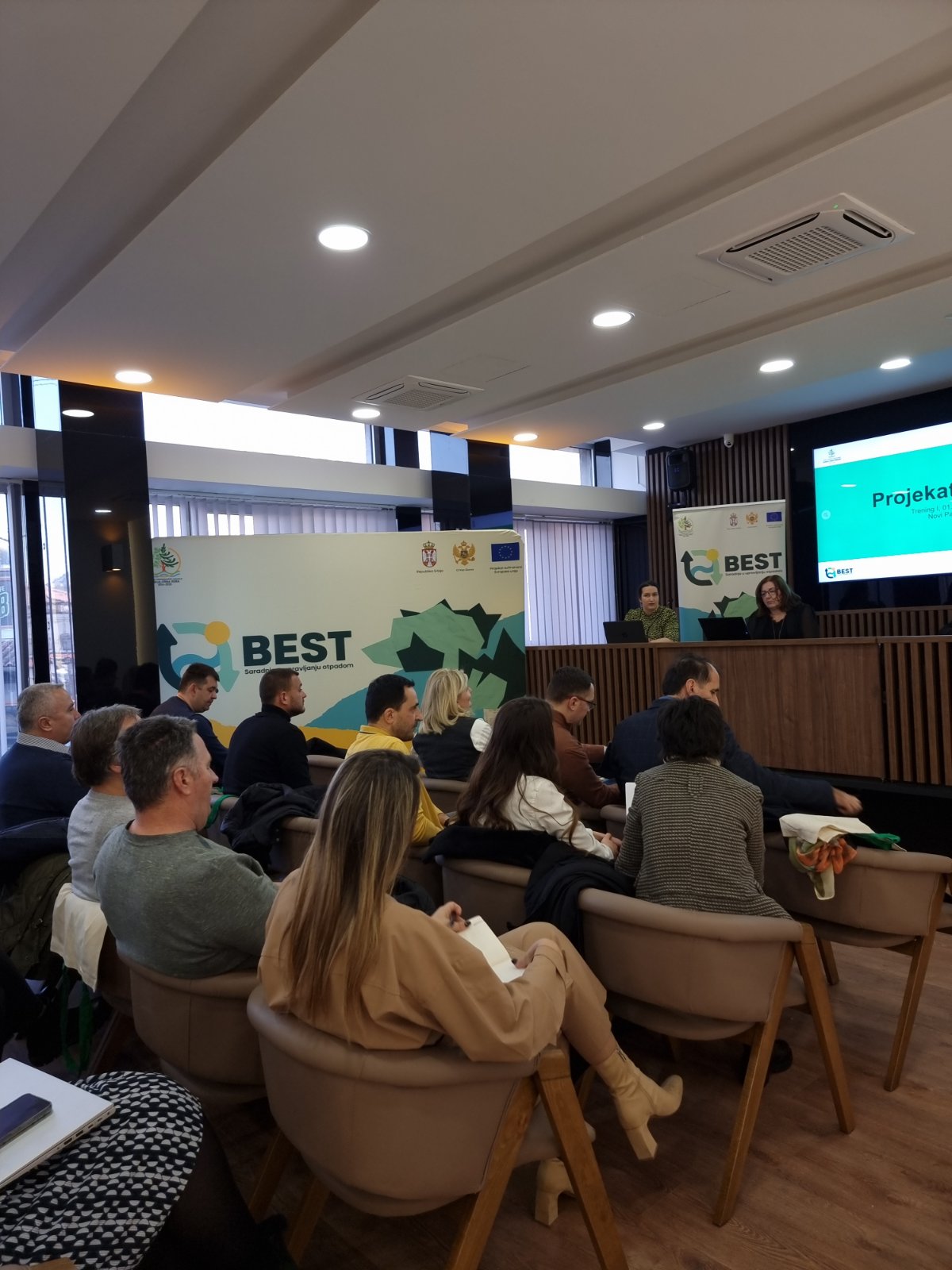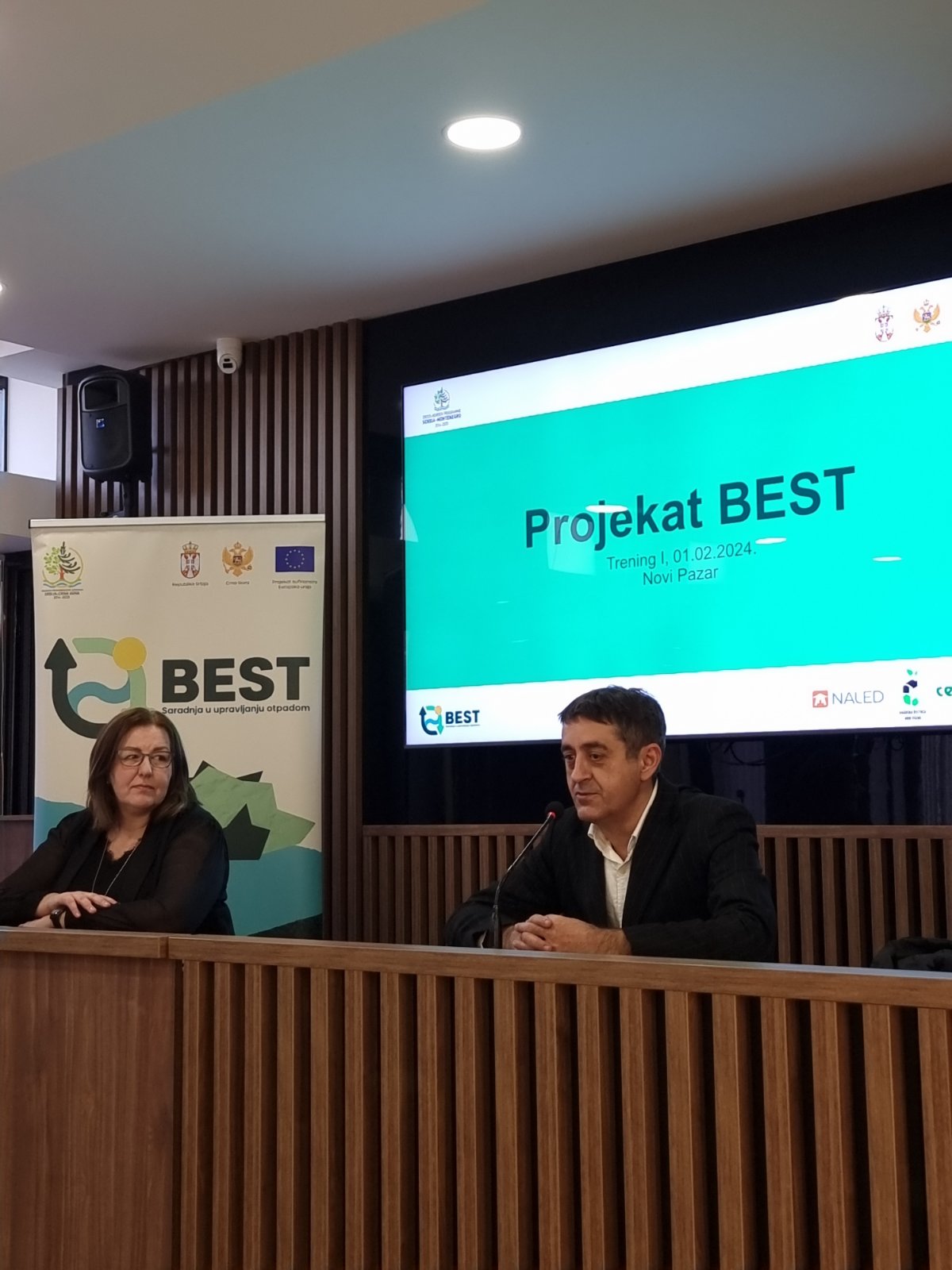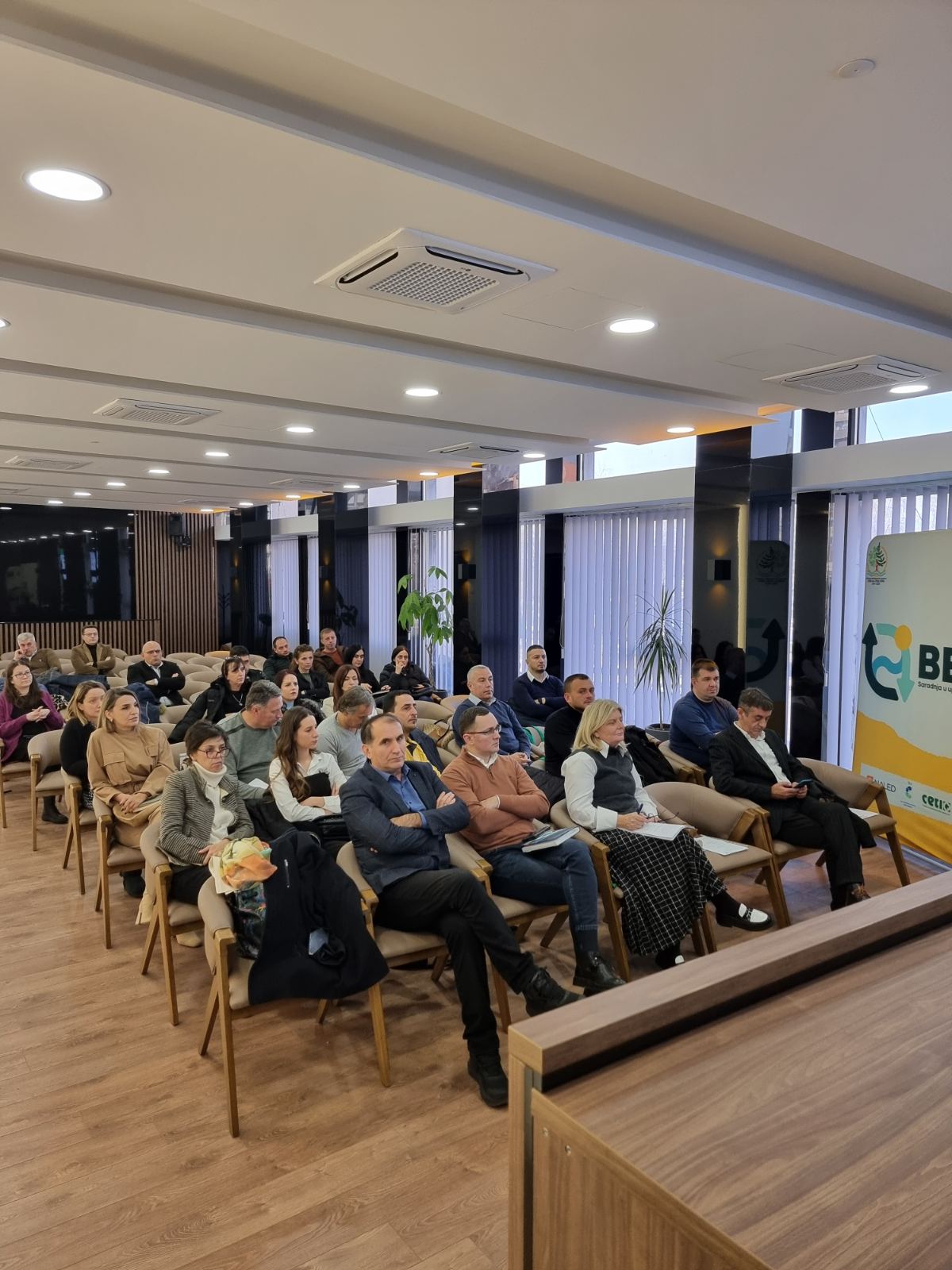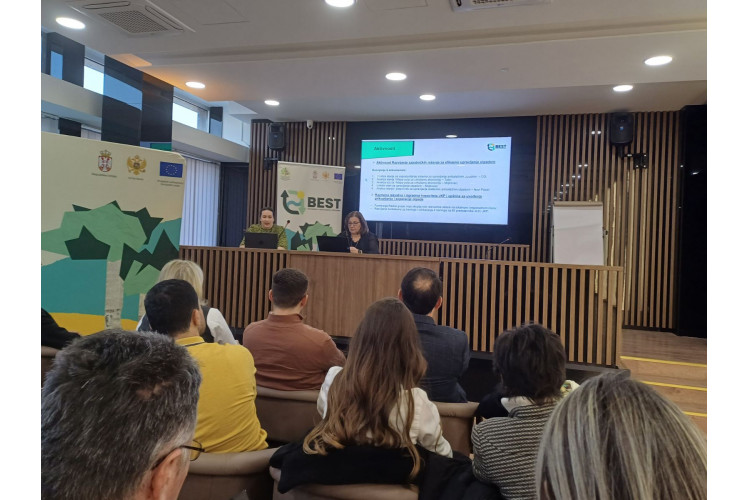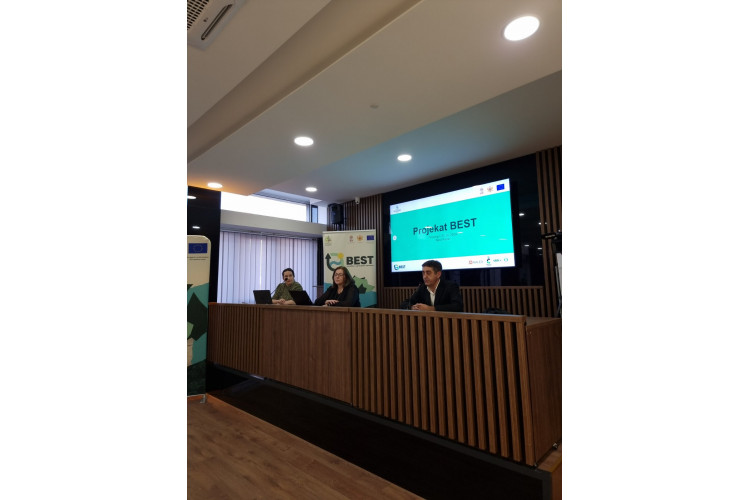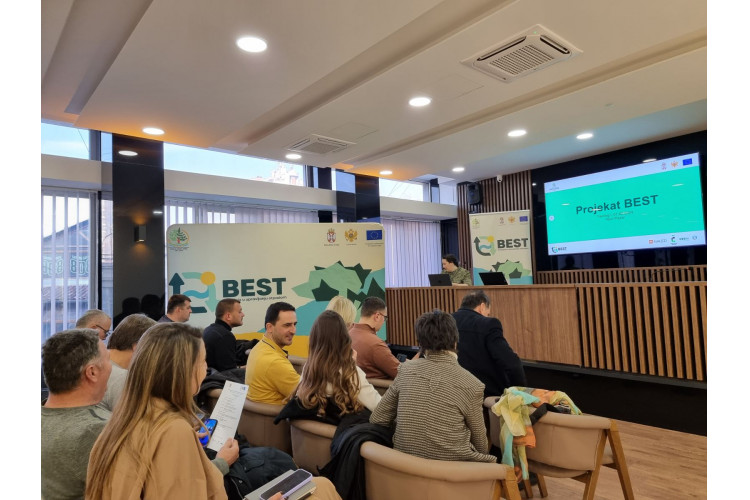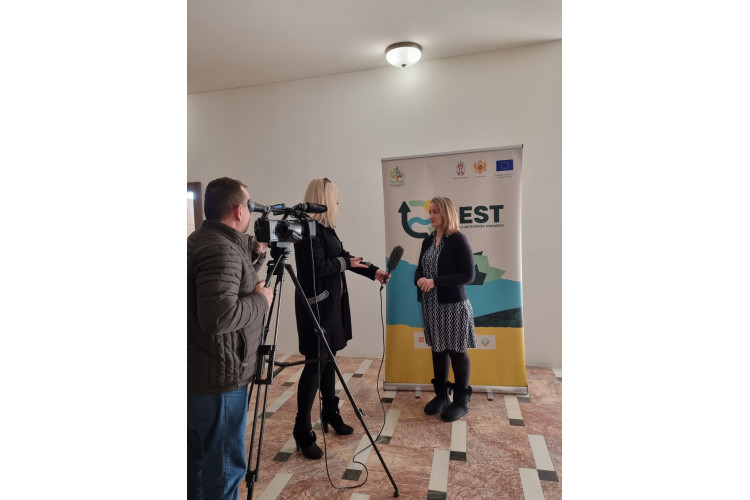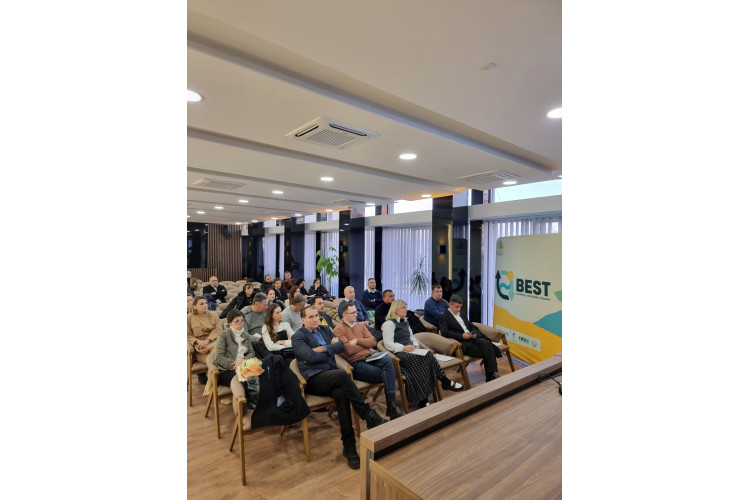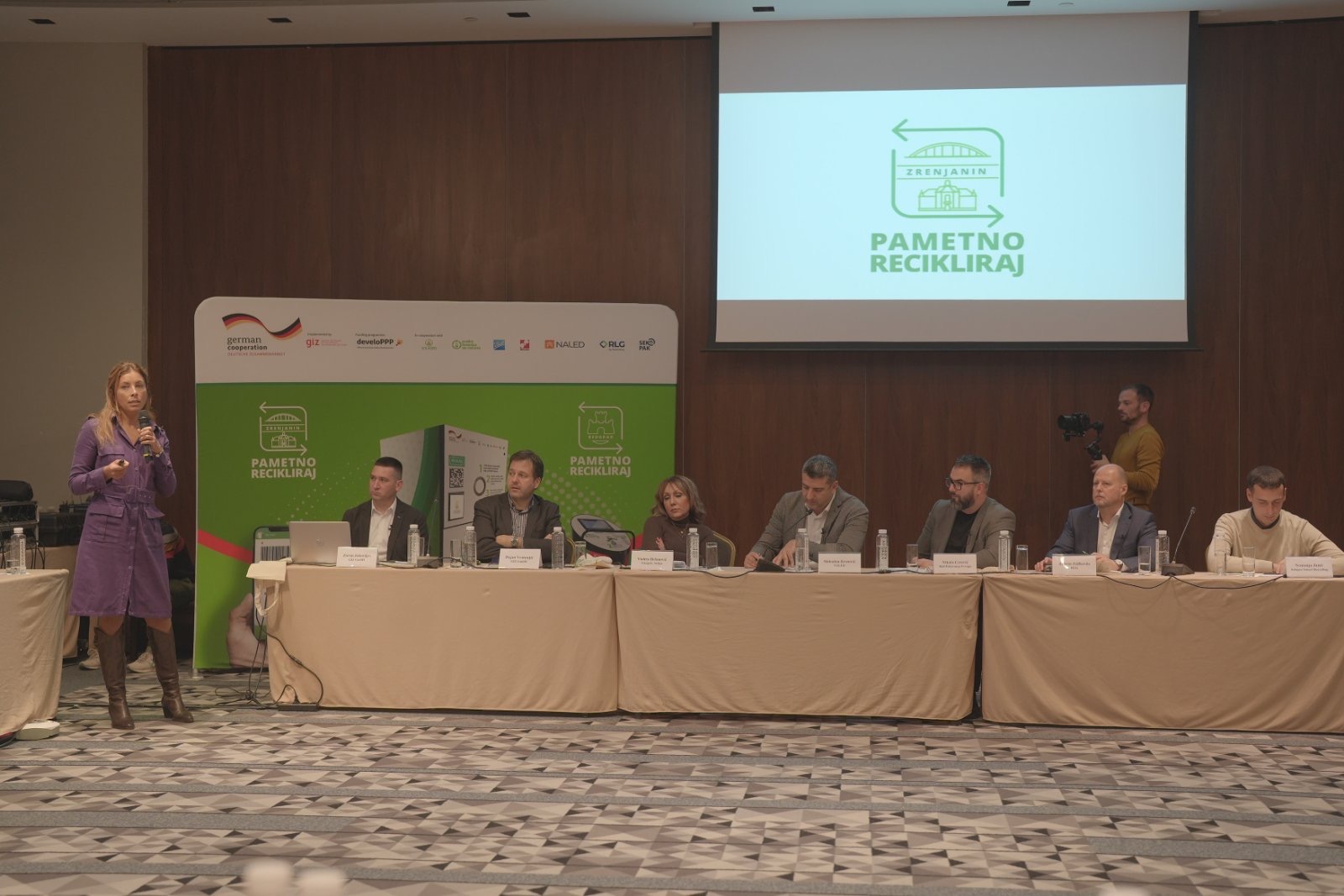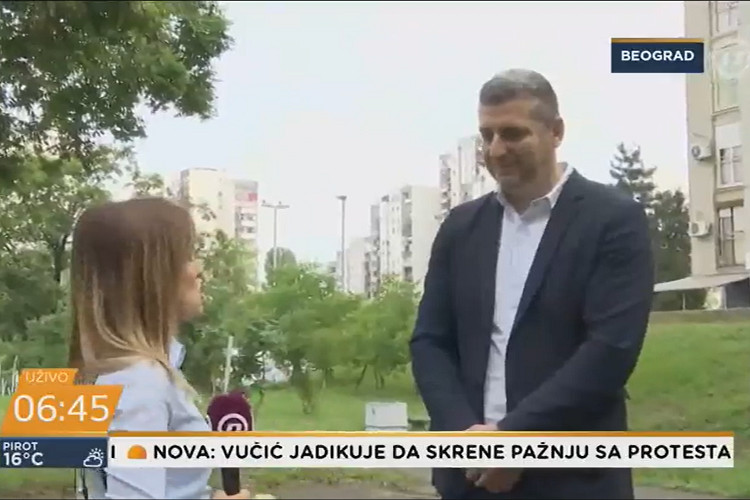More than 90% of municipal waste ends up in landfills
In Serbia, around 2.4 million tons of municipal waste are collected annually, but it's important to note that the actual amounts generated are much higher, as about a third of the population is not covered by organized waste collection. To establish an appropriate waste management system, it is necessary to first develop primary selection at the local level, followed by citizen education, construction of sanitary landfills and waste processing facilities, and other activities. This was emphasized at the first training session for representatives of local self-governments and public utility companies from Mojkovac, Bijelo Polje, Kolašin, Novi Pazar, and Tutin.
The training was conducted by experts from the Dvoper company engaged within the project "BEST: Cooperation in Waste Management – Towards a Sustainable Environment," implemented by NALED. The project aims to improve the capacities of municipalities and public utility companies for waste collection and primary selection to increase the amount of recycled waste and raise awareness among the local population about the importance of recycling.
Through mutual cooperation, Novi Pazar and Mojkovac will receive 2,000 bins for sorting packaging waste – 1,500 will be delivered to Novi Pazar, while 500 will be sent to Mojkovac. For this Montenegrin municipality, this is the first cross-border cooperation project in the field of waste management.
"In addition to infrastructure, we are also working on raising awareness among public utility companies and citizens in the region because this is a way for primary selection to fully take root. An analysis of glass packaging waste management is being conducted for Novi Pazar, and other local self-governments will also receive documents related to circular economy and the establishment of packaging waste management systems in Montenegro," said Sanja Knežević Mitrović, Manager for Regulatory Reform at NALED.
Examples of good practices from the European Union were presented, where, according to Eurostat data, 48% of waste is recycled and composted, 27% is used for energy production, and only 24% ends up in landfills.
Exact data is lacking in Serbia, but it is estimated that more than 90% of municipal waste is disposed of in sanitary and non-sanitary landfills, where a significant amount of waste, including industrially usable waste, also ends up being used for energy purposes. Landfilling is the least favorable option for the environment, and it is necessary to consider recycling and energy treatment of waste to approach sustainable trends.
Austria, Belgium, Denmark, Finland, the Netherlands, Germany, and Sweden are leaders in the EU in terms of minimal amounts of waste deposited, with less than 4% of waste deposited in all these countries. Additionally, some countries, such as Austria, have legally prohibited the deposition of waste that has not undergone some form of treatment.
Regarding packaging waste, in Serbia, over the past ten years, 3.7 million tons of packaging have been placed on the market, of which 39% has been recycled, while about 61% has ended up in landfills or in the environment without control. Cardboard and paper are the most successfully recycled (95%), while plastic is the least recycled material (35%).
As a significant obstacle to the development of infrastructure for collecting packaging waste, the training highlighted the lack of locations for the construction of recycling centers and the installation of communal bins and recycling islands.
It should be mandated by law that the local waste management plan be harmonized with the local spatial plan and that the introduction of two bins for waste in households creates the possibility for citizens who separate their waste into the "recyclable" bin to be financially rewarded for their effort.

